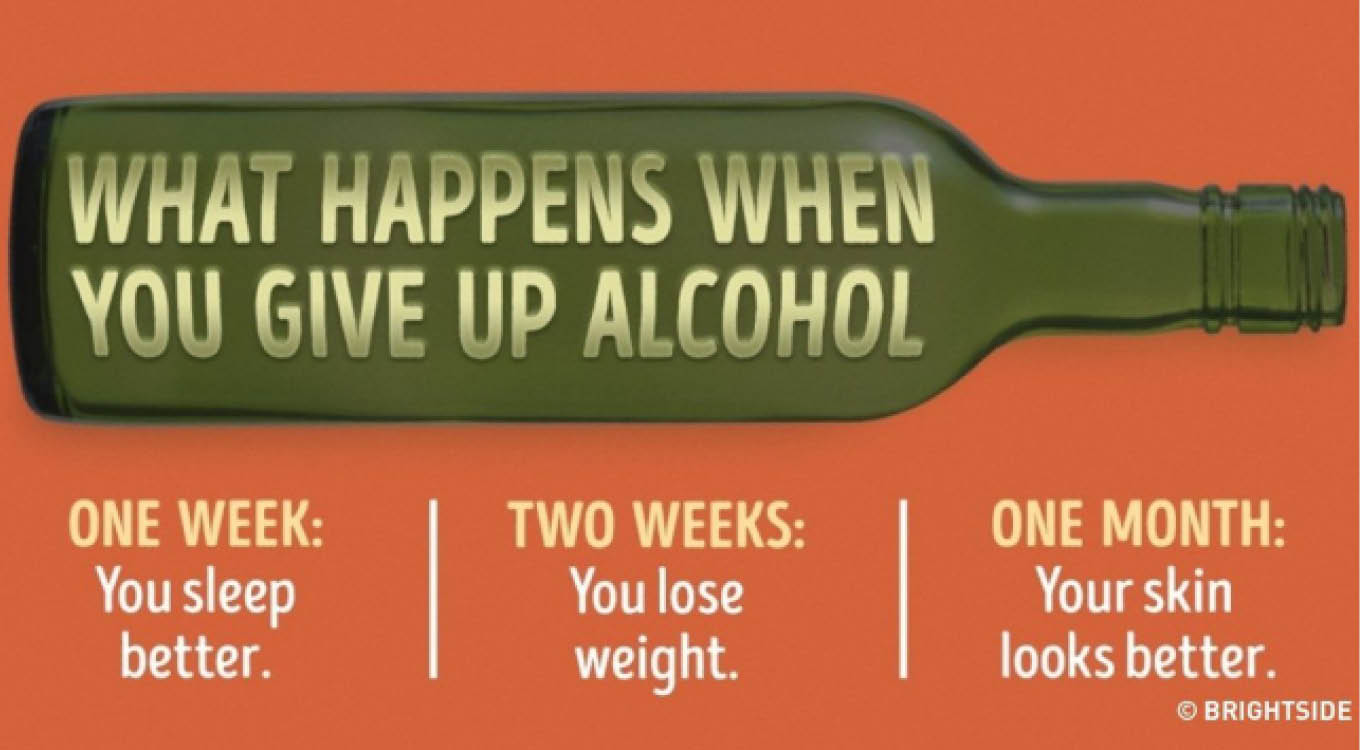What happens when you quit drinking
Dodge accidents. Alcohol plays a role in at least half of all serious trauma injuries and deaths from burns, drownings, and homicides. It’s also involved in four out of 10 fatal falls and traffic crashes, as well as suicides. You don’t have to go completely dry to be safer. Even cutting back your drinking by […]

What happens when you quit drinking
Dodge accidents. Alcohol plays a role in at least half of all serious trauma injuries and deaths from burns, drownings, and homicides. It’s also involved in four out of 10 fatal falls and traffic crashes, as well as suicides. You don’t have to go completely dry to be safer. Even cutting back your drinking by a third can lower the number of injuries and sick days.
Healthier heart. You might think that a regular glass of red wine or other alcoholic beverages might be good for your heart. But that may not be true, or true only for light sippers (less than one drink a day). If you use more than that, cutting back or quitting may lower your blood pressure, levels of fat called triglycerides, and chances of heart failure.
Healing liver. Your liver’s job is to filter toxins. And alcohol is toxic to your cells. Heavy drinking — at least 15 drinks for men and eight or more for women a week — can take a toll on the organ and lead to fatty liver, cirrhosis, and other problems. The good news: your liver can repair itself and even regenerate. So it’s always worth drinking less or quitting.
Shed kilos. A glass of regular beer has about 150 calories, and a serving of wine has about 120. On top of those mostly empty calories, alcohol ramps up your appetite. It also makes you more impulsive, and less able to resist the fries and other temptations on the menu. So when you stay away from alcohol, the number on your scale may well start moving down.
Better relationships. Enjoying alcohol socially in reasonable amounts can boost your mood and help you bond with others. But if you drink alone, or down multiple drinks a day, it could turn into an unhealthy habit. If you can’t control it, it may lead to a condition called alcohol use disorder. Giving up drinking may let you focus on your relationships, work, and health. It also may ease any depression and anxiety and elevate your self-esteem.
Sleep better. Alcohol might get you drowsy at first. But once you fall into slumber, it can wake you up repeatedly in the night. Plus, it disrupts the important REM stage of sleep and may interfere with your breathing. You also may need to get up more often to pee. Try skipping alcohol, especially in the late afternoon and evening, for more restful shut-eye.
Get sick less. Even just one bout of drinking too much may weaken your body’s germ-fighting power for up to 24 hours. Over time, large amounts of alcohol blunt your immune system and your body’s ability to repair itself. Ease up on drinking so you may better ward off illnesses.
Lower BP. If you drink a lot and your blood pressure is too high, you might be able to bring your numbers back down to normal by doing one simple thing: giving up alcohol. Even simply easing back on drinks can have a big payoff. Talk to your doctor about your numbers. Normal blood pressure is below 120/80. You have high blood pressure if yours is above 130/80.
Clearer brain. Alcohol dependence can make it harder to think or remember things. Over time, heavy drinking can cloud your perception of distances and volumes, or slow and impair your motor skills. It can even make it harder for you to read other people’s emotions. But if you quit, your brain seems to be able to regain some of these abilities.
Courtesy: WebMD
